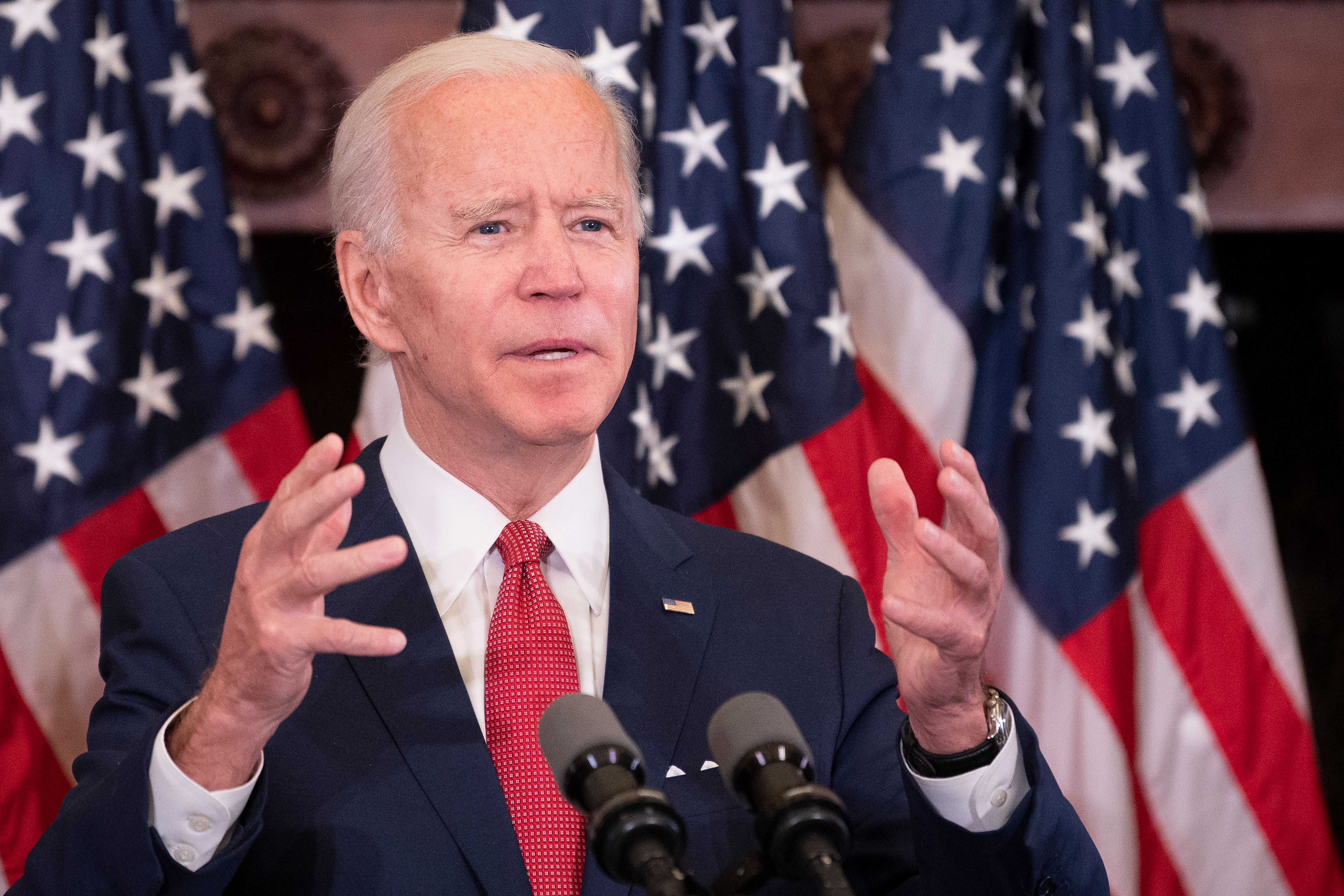Democratic presidential candidate Joe Biden speaks about the unrest across the country from Philadelphia City Hall on June 2, 2020 in Philadelphia, Pennsylvania.
Jim Watson | AFP | Getty Images
The chances of winning November’s presidential election have moved “firmly” in favor of Democratic candidate Joe Biden, economists have projected.
In a report published Wednesday, analysts from the Economist Intelligence Unit (EIU) said the outlook for the election had changed dramatically in recent months, noting that while it would be closely fought, “the odds have now shifted firmly in Mr. Biden’s favour.”
At the beginning of this year, economists said, Trump looked set to win another term as president thanks to a thriving economy, low unemployment and disarray within the Democratic Party. However, they said “all of this has changed” amid the coronavirus crisis, the resulting recession, and the most serious wave of civil unrest in half a century.
“Trump’s response to both crises has further exposed his divisive style, which is unpopular among the independent voters who will be critical in deciding the election’s outcome,” the report noted.
“Meanwhile, Democratic voters have rallied behind their nominee, Joe Biden.”
Although Trump still benefited from a strong base, which analysts estimated accounts for 40% to 44% of the population, the EIU said the president would need to attract voters from outside of that core base in order to defeat Biden in November.
“The Trump campaign has lost most of its previous advantages in recent months,” analysts said. “As a result, we do not expect him to be able to generate enough support from swing voters to follow the same narrow path to victory in 2020.”
Economic outlook
The most important development for the Trump campaign in the run-up to the election would be the state of the U.S. economy, according to the EIU.
“Earlier hopes that the economy would rebound strongly in the third quarter of 2020 as coronavirus lockdown measures are lifted now appear far-fetched,” economists said in the report. They speculated that consumer spending would not recover to pre-pandemic levels until a Covid-19 vaccine became widely available — which they predicted would not happen until at least the end of 2021.
“Weak demand will continue to weigh on businesses and most likely keep unemployment around 10% at the time of the election,” they projected.
The report noted that fiscal stimulus had sheltered many households from the pandemic-induced economic downturn, which could be “inflating Trump’s already unimpressive poll numbers.” But economists added that if emergency aid was not extended in July, many Americans would find themselves more financially unstable toward the end of the year.
“This does not bode well for Trump, as economic conditions immediately surrounding elections are a strong determinant of voter behavior,” they said, although they added that this alone was not enough to thwart the president’s re-election.
Earlier this month, a CNBC/Change Research poll found that Biden had taken the lead over Trump in six swing states, with the Democratic nominee leading by a 48% to 45% margin across Arizona, Florida, Michigan, North Carolina, Pennsylvania and Wisconsin.
Trump had previously led in every version of the survey dating back to March.
Wildcards
As well as economic performance, the EIU noted that there were “a number of wildcards” that would influence the outcome of the presidential race.
Protests across the U.S. would have important implications, the EIU said, predicting that an excessive use of force against demonstrators would lead swing voters further away from the Trump administration.
“Trump’s focus on law enforcement will resonate with his core supporters. However, his disdain for the protests will mobilize black voters and could antagonize suburban voters, most likely strengthening voter turnout for Biden from these two key demographics,” economists said.
Further deterioration in U.S.-China relations could also sway the election, according to the EIU. If a trade deal between the two countries collapsed, American farmers — whose votes are “critical” for Trump — would be hurt.
Biden’s choice of running mate was also crucial, the report said, with analysts anticipating that by choosing a progressive Democrat, he would find it easier to win over former supporters of Bernie Sanders and in turn strengthen his core support base.
The effects of Covid-19 means it is unclear whether social-distancing measures would depress voter turnout come November, the EIU added. As both candidates were reliant on swing and independent voters, maximizing turnout was critical and mail-in ballots would become vital. But any malfunction in the postal ballot system, analysts warned, could see the outcome of the election disputed and lead to a “messy transition.”

